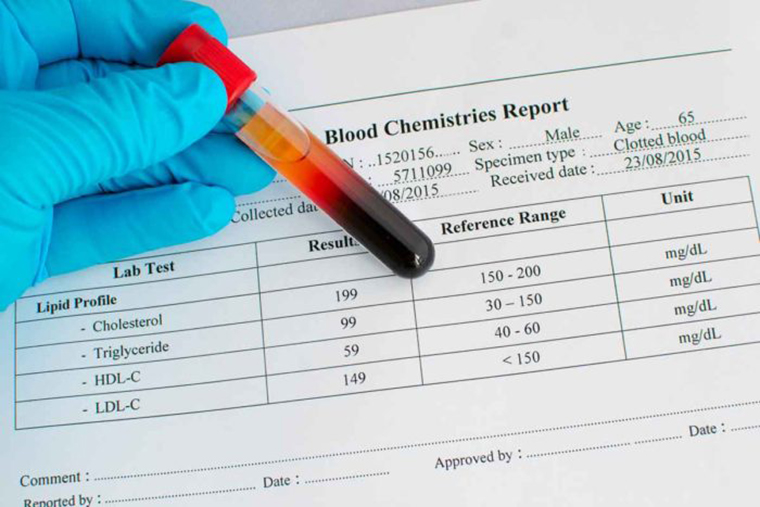
Commonly touted as “good cholesterol” for helping to reduce risk of stroke and heart attack, both high and low levels of high-density lipoprotein (HDL) cholesterol may increase a person’s risk of premature death, according to new research at Washington University School of Medicine in St. Louis and Veterans Affairs St. Louis Health Care System.
Conversely, intermediate HDL cholesterol levels may increase longevity, according to the research.
The large-scale epidemiological study is published Aug. 11 in the Clinical Journal of the American Society of Nephrology.
“The findings surprised us,” said Ziyad Al-Aly, MD, an assistant professor of medicine at Washington University and the study’s senior author. “Previously it was thought that raised levels of the good cholesterol were beneficial. The relationship between increased levels of HDL cholesterol and early death is unexpected and not fully clear yet. This will require further study.”
Cholesterol is a fatty substance found in blood that can narrow and block heart vessels, causing cardiovascular disease and stroke. For years, HDL cholesterol has been credited with helping to remove plaque-building “bad cholesterol” from arteries.
For this study, researchers studied kidney function and HDL cholesterol levels in more than 1.7 million male veterans from October 2003 through September 2004. Researchers then followed participants until September 2013.
Patients with kidney disease frequently have lower levels of HDL cholesterol, which might explain their increased risk of early death; however, the association between elevated HDL cholesterol levels and premature death in these patients has been unclear. In the current study, the researchers showed that both high and low HDL cholesterol levels were associated with an increased risk of dying among study participants with all levels of kidney function.
“The findings may explain why clinical trials aimed at increasing HDL cholesterol levels failed to show improved outcomes,” said Al-Aly, who also is the VA’s associate chief of staff for research and education and co-director of the VA’s Clinical Epidemiology Center in St. Louis.
Such findings regarding HDL cholesterol and premature death have not been reported in other large epidemiologic studies that have advanced understanding of the relationship between cholesterol parameters and clinical outcomes, Al-Aly said.
“However, the previous studies are limited in that the number of patients in those cohorts is relatively small compared with what a big data approach enabled us to see in our new research,” he said. “Big data allow a more nuanced examination of the relationship between HDL cholesterol and risk of death across the full spectrum of HDL cholesterol levels.”
Research data showed a relationship between HDL cholesterol levels and mortality as a U-shaped curve with the risk of death increased at both ends of the spectrum. “Too low and too high are both associated with higher risk of death,” Al-Aly said.
Whether maintaining intermediate HDL cholesterol levels may increase longevity will need to be explored in future studies, Al-Aly said.
“A large database is critical in allowing us to research and challenge prior knowledge in our continuing efforts to create a better understanding of HDL cholesterol levels and risk of death,” he said.